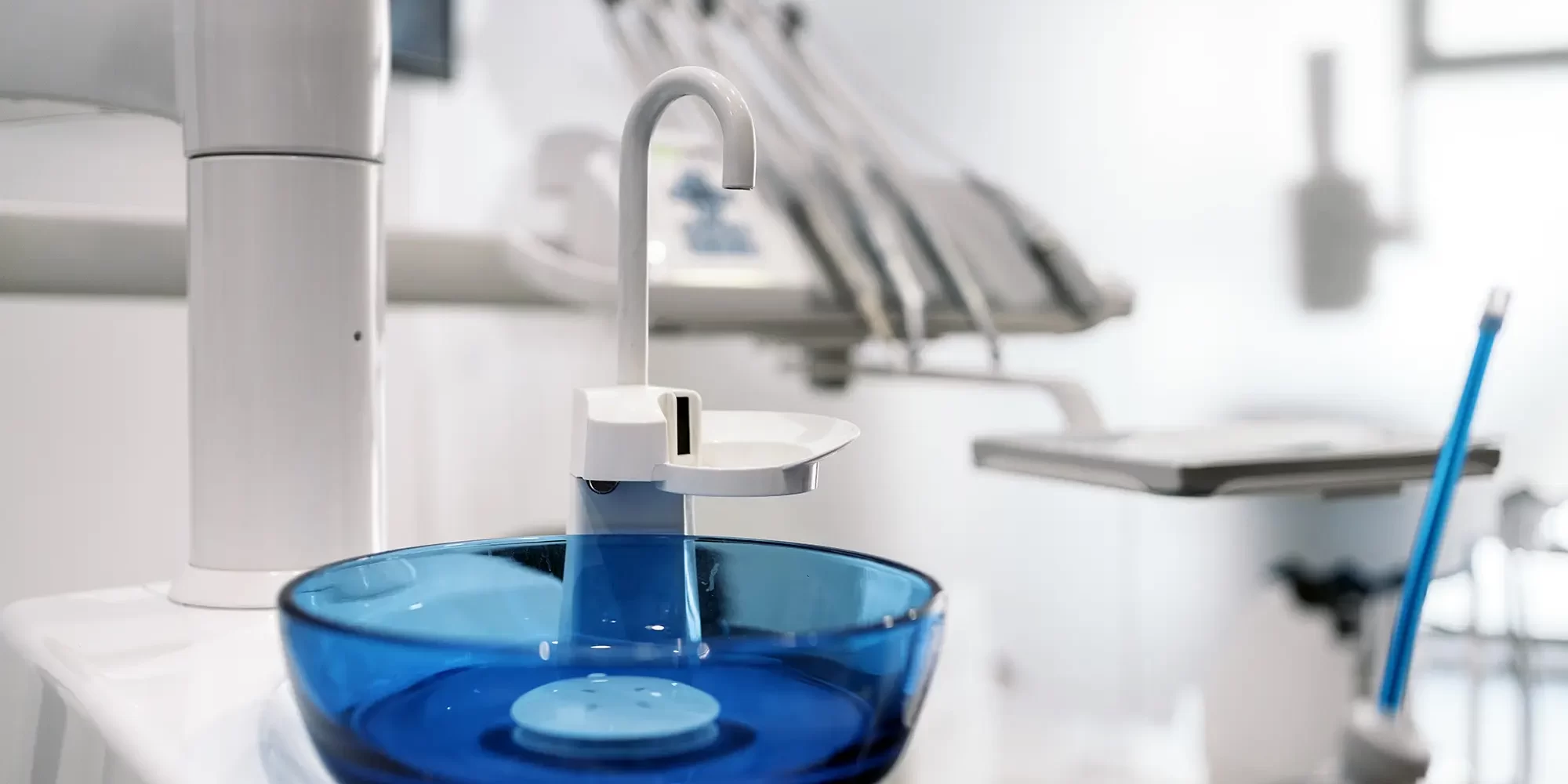In the world of dentistry, maintaining the cleanliness of water lines is crucial for ensuring safe and effective dental care.
Contaminated dental unit waterlines can pose significant health risks to patients and staff alike, given the potential presence of harmful microorganisms.
Chlorine Dioxide (ClO2) has emerged as a superior solution for disinfecting dental water lines, ensuring they remain free from biofilm and microbial contamination. This article explores the importance of using Chlorine Dioxide in dental practices and its impact on water line hygiene.
The Challenge of Microbial Contamination in Dental Water Lines
 Dental unit water lines (DUWLs) are susceptible to the development of biofilms, which are colonies of bacteria that adhere to surfaces and are embedded within a protective slime layer. These biofilms can harbour microorganisms, including bacteria like Legionella and Pseudomonas, and pose a risk of infection to patients, particularly during procedures that produce aerosols.
Dental unit water lines (DUWLs) are susceptible to the development of biofilms, which are colonies of bacteria that adhere to surfaces and are embedded within a protective slime layer. These biofilms can harbour microorganisms, including bacteria like Legionella and Pseudomonas, and pose a risk of infection to patients, particularly during procedures that produce aerosols.
Why Chlorine Dioxide?
Chlorine Dioxide is renowned for its potent antimicrobial properties, making it an excellent choice for water line treatment. Unlike traditional chlorine, ClO2 is highly effective at low concentrations and does not react with organic matter to form harmful by-products. Its unique qualities include:
- Broad-spectrum antimicrobial action: ClO2 is effective against a wide range of pathogens, including those commonly found in biofilms.
- Stability and effectiveness in organic matter: Unlike other disinfectants that may become less effective in the presence of organic materials, ClO2 maintains its potency.
- Safety: ClO2 is safe to use in the concentrations required for dental water lines, posing no risk to patients or dental staff when used appropriately.
Implementing Chlorine Dioxide in Dental Practices
 Incorporating ClO2 into a dental practice’s infection control protocol involves several key steps:
Incorporating ClO2 into a dental practice’s infection control protocol involves several key steps:
- Assessment and Installation: Initial assessment of existing water line systems is necessary to determine the appropriate ClO2 dosing system. Installation should be carried out by professionals to ensure it integrates seamlessly with existing dental unit setups.
- Regular Maintenance and Monitoring: Routine maintenance of the ClO2 delivery system is essential to ensure it functions optimally. Regular monitoring of water quality, including microbial testing, helps ensure the system’s effectiveness over time.
- Staff Training: Educating dental staff on the importance of DUWL hygiene and the use of ClO2 is crucial. Proper training ensures that everyone understands how to maintain and monitor the system effectively.
Benefits of Using Chlorine Dioxide in Dental Water Lines
The benefits of using ClO2 in dental water lines are significant:
- Improved Patient Safety: Reduces the risk of infection from contaminated water, ensuring patient safety during dental procedures.
- Compliance with Health Standards: Helps dental practices meet and exceed health and safety standards set by regulatory bodies.
- Enhanced Reputation: Practices using advanced disinfection methods like ClO2 are often viewed more favourably by patients, enhancing the practice’s reputation for safety and care.
The use of Chlorine Dioxide in dental water lines represents a significant advancement in dental practice hygiene. By effectively eliminating biofilms and microbial contamination, ClO2 helps ensure that dental unit water lines are safe, thereby protecting both patient health and enhancing the overall quality of dental care. Scotmas provides state-of-the-art ClO2 solutions tailored to the unique needs of dental practices, supporting dentists in their commitment to providing the safest possible environment for their patients. Contact us today for more information on integrating Chlorine Dioxide into your dental practice.






